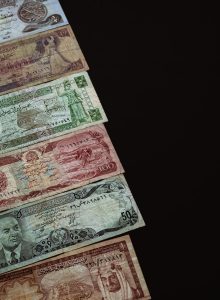Forex trading, also known as foreign exchange trading, is the act of buying and selling currencies from different countries with the aim of making a profit. The forex market is the largest financial market in the world, with an average daily trading volume of over $5 trillion.
Forex trading has become increasingly popular over the years, with the rise of online trading platforms and the accessibility of the market to individual traders. In the past, forex trading was only accessible to large financial institutions and banks. However, with the emergence of online trading platforms, anyone with an internet connection can now participate in the forex market.
The forex market operates 24 hours a day, five days a week, with trading sessions starting in Asia and ending in North America. The market is decentralized, meaning that there is no central exchange or clearinghouse. Instead, transactions are conducted through a network of banks, brokers, and other financial institutions.
One of the main advantages of forex trading is the high liquidity of the market. This means that traders can easily buy and sell currencies at any time without having to worry about the market being too volatile or illiquid. Additionally, the forex market is highly leveraged, which means that traders can use borrowed funds to increase their trading positions and potentially increase their profits.
However, with high leverage also comes high risk. Forex trading is a highly speculative and complex market, and traders should be aware of the risks involved before entering the market. While the potential for high profits is enticing, traders should also be aware of the potential for high losses.
To participate in forex trading, traders will need to open a trading account with a broker. There are many different types of brokers available, from full-service brokers to discount brokers. Full-service brokers offer a range of services, including research and analysis, while discount brokers offer lower fees but less support.
Once a trader has opened a trading account, they can start trading by placing orders to buy or sell currencies. There are many different trading strategies that traders can use, including technical analysis, fundamental analysis, and algorithmic trading.
Technical analysis involves using charts and indicators to identify patterns in the market and make trading decisions. Fundamental analysis involves analyzing economic and political events to determine the direction of the market. Algorithmic trading involves using computer programs to execute trades based on predetermined criteria.
In conclusion, forex trading is a popular and exciting market that has become accessible to individual traders through online trading platforms. While there are many potential benefits to forex trading, traders should also be aware of the risks involved and should take steps to manage their risk. With the right knowledge and strategy, forex trading can be a profitable and rewarding experience.





